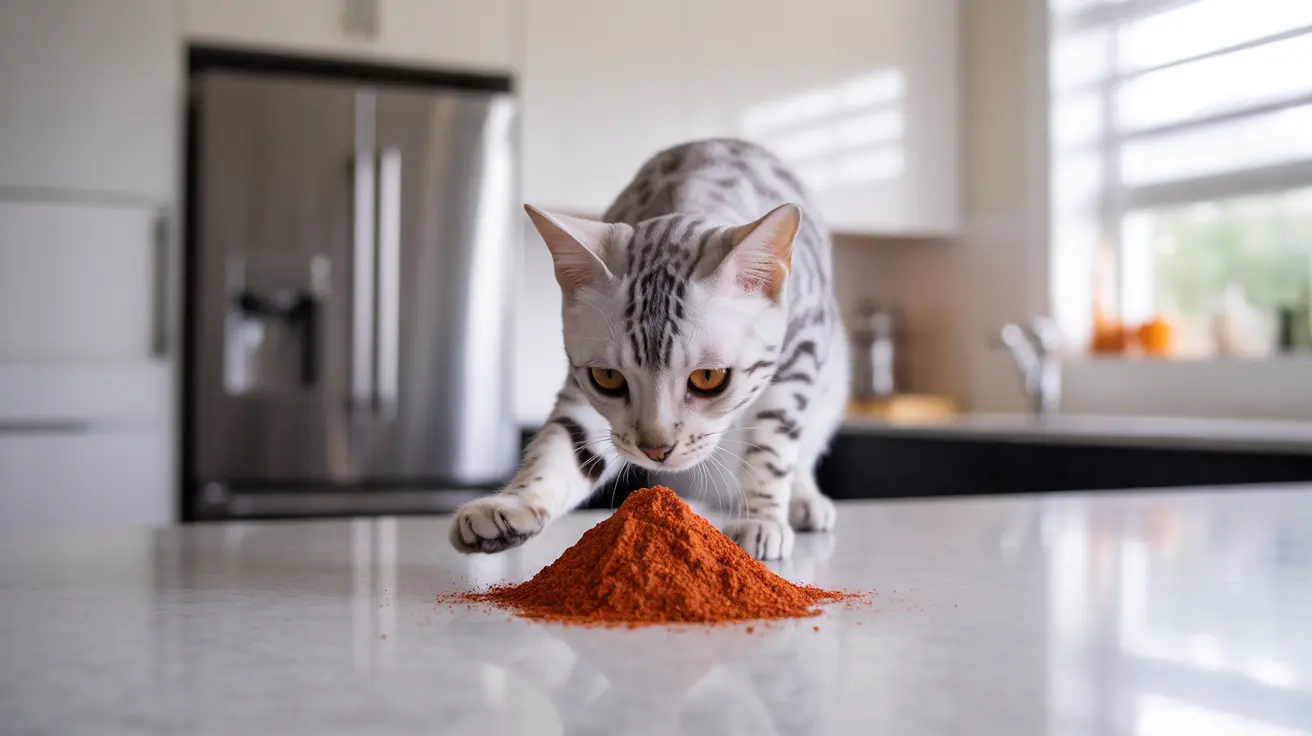Many pet owners and gardeners wonder about using cayenne pepper to deter cats from unwanted areas. While this spicy deterrent might seem like a natural solution, it's crucial to understand the potential risks and health implications for our feline friends. This comprehensive guide will explore why cayenne pepper can be harmful to cats and what safer alternatives you can use instead.
Understanding Cayenne Pepper's Effects on Cats
Cayenne pepper contains capsaicin, a compound that causes intense irritation in cats. Unlike humans, cats have a much more sensitive respiratory system and delicate mucous membranes, making them particularly vulnerable to the effects of this spicy substance.
When cats encounter cayenne pepper, they may experience various uncomfortable and potentially dangerous reactions:
- Severe irritation of eyes, nose, and throat
- Respiratory distress and excessive sneezing
- Intense burning sensation on paws and skin
- Digestive upset if ingested during grooming
Health Risks of Cayenne Pepper Exposure
Immediate Physical Reactions
When cats come into contact with cayenne pepper, they often show immediate signs of distress, including:
- Excessive drooling
- Pawing at the face
- Difficulty breathing
- Vomiting or gagging
- Running eyes and nose
Long-term Health Concerns
Repeated exposure to cayenne pepper can lead to more serious health issues:
- Chronic respiratory problems
- Ongoing digestive issues
- Potential damage to sensitive tissues
- Elevated stress levels affecting overall health
Why Veterinarians Advise Against Cayenne Pepper
Professional veterinarians strongly discourage the use of cayenne pepper as a cat deterrent for several reasons:
- It causes unnecessary pain and suffering
- The effects can be severe in young, elderly, or sick cats
- There's risk of permanent damage if it gets in their eyes
- The stress of exposure can lead to behavioral issues
Safe and Effective Alternatives to Cayenne Pepper
Natural Deterrents
Instead of cayenne pepper, consider these pet-safe alternatives:
- Citrus peels or citrus-based sprays
- Coffee grounds
- Commercial pet-safe repellents
- Aromatic herbs like rosemary or lavender
Physical Barriers
Create effective barriers to keep cats away:
- Motion-activated sprinklers
- Protective garden netting
- Decorative rocks or stone mulch
- Physical fencing or screens
Frequently Asked Questions
Is cayenne pepper bad for cats, and why should I avoid using it?
Yes, cayenne pepper is bad for cats. It causes severe irritation to their eyes, nose, throat, and digestive system. The capsaicin in cayenne pepper can lead to respiratory distress, vomiting, and intense discomfort, making it an inhumane deterrent choice.
How can I keep cats out of my garden using safe and humane methods?
Use pet-safe commercial repellents, physical barriers like netting or fencing, motion-activated sprinklers, or natural deterrents like citrus peels. These methods effectively keep cats away without causing harm or distress.
What are the health risks if my cat ingests cayenne pepper?
If a cat ingests cayenne pepper, they may experience severe gastrointestinal upset, including vomiting, diarrhea, and abdominal pain. They might also suffer from respiratory issues and intense oral discomfort.
Can cayenne pepper cause eye or skin irritation in cats?
Yes, cayenne pepper can cause severe irritation to cats' eyes and skin. Contact with eyes can lead to intense pain and potential damage, while skin contact can cause burning sensations and inflammation.
Are there any effective alternatives to cayenne pepper for deterring cats from unwanted areas?
Yes, many effective alternatives exist, including commercial pet deterrent sprays, citrus-based repellents, physical barriers, motion-activated devices, and aromatic plants that cats naturally avoid.
Conclusion
While cayenne pepper might seem like an easy solution for keeping cats away, its potential to cause harm makes it an inappropriate choice for pet owners and gardeners alike. Instead, opt for humane deterrent methods that protect both your space and the wellbeing of all cats in your community. Remember, there are plenty of effective alternatives that don't risk causing pain or distress to these sensitive animals.






